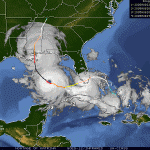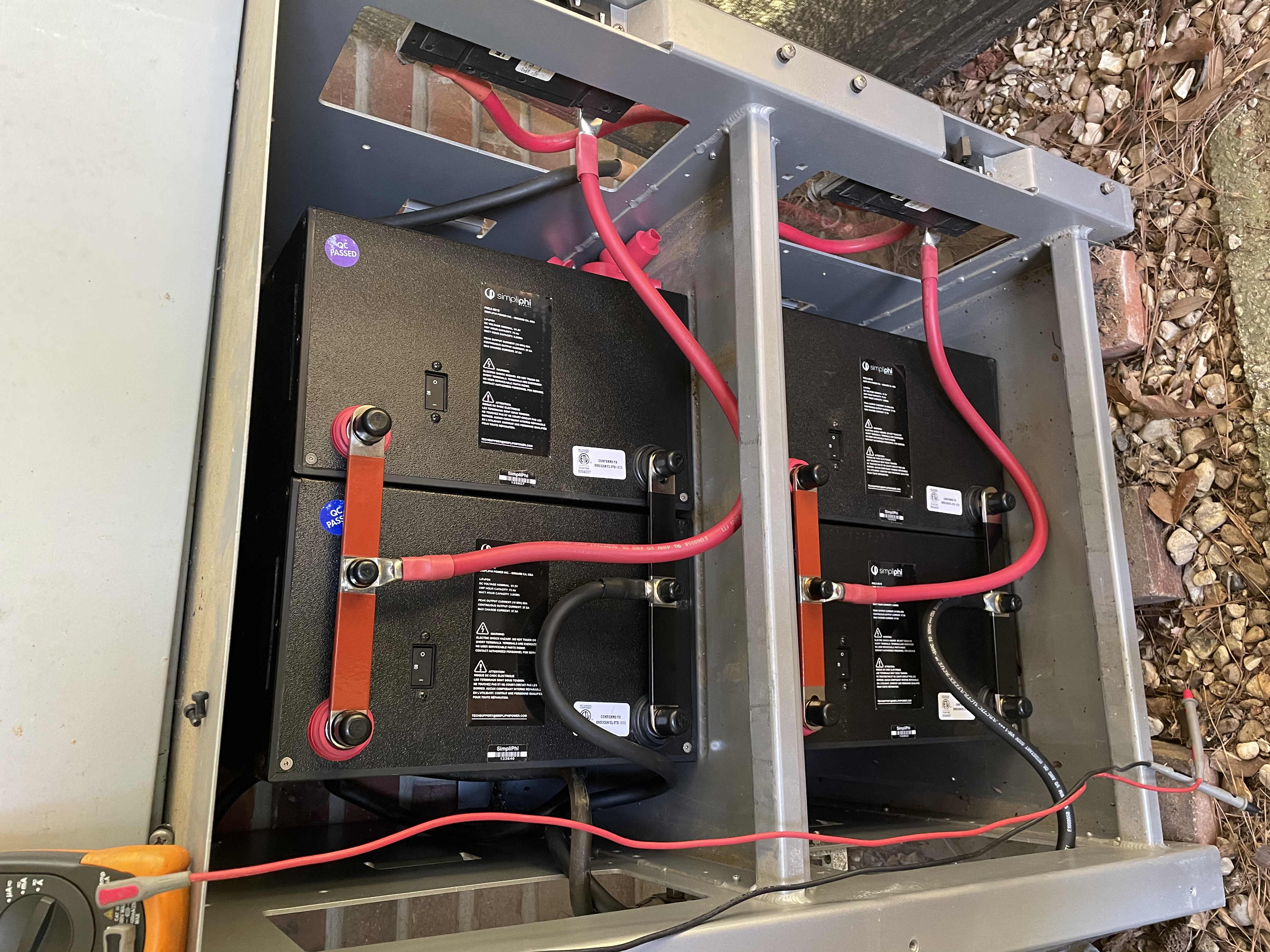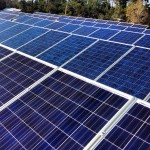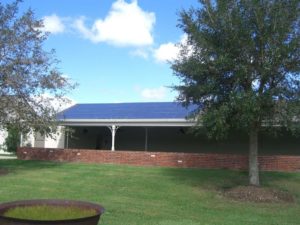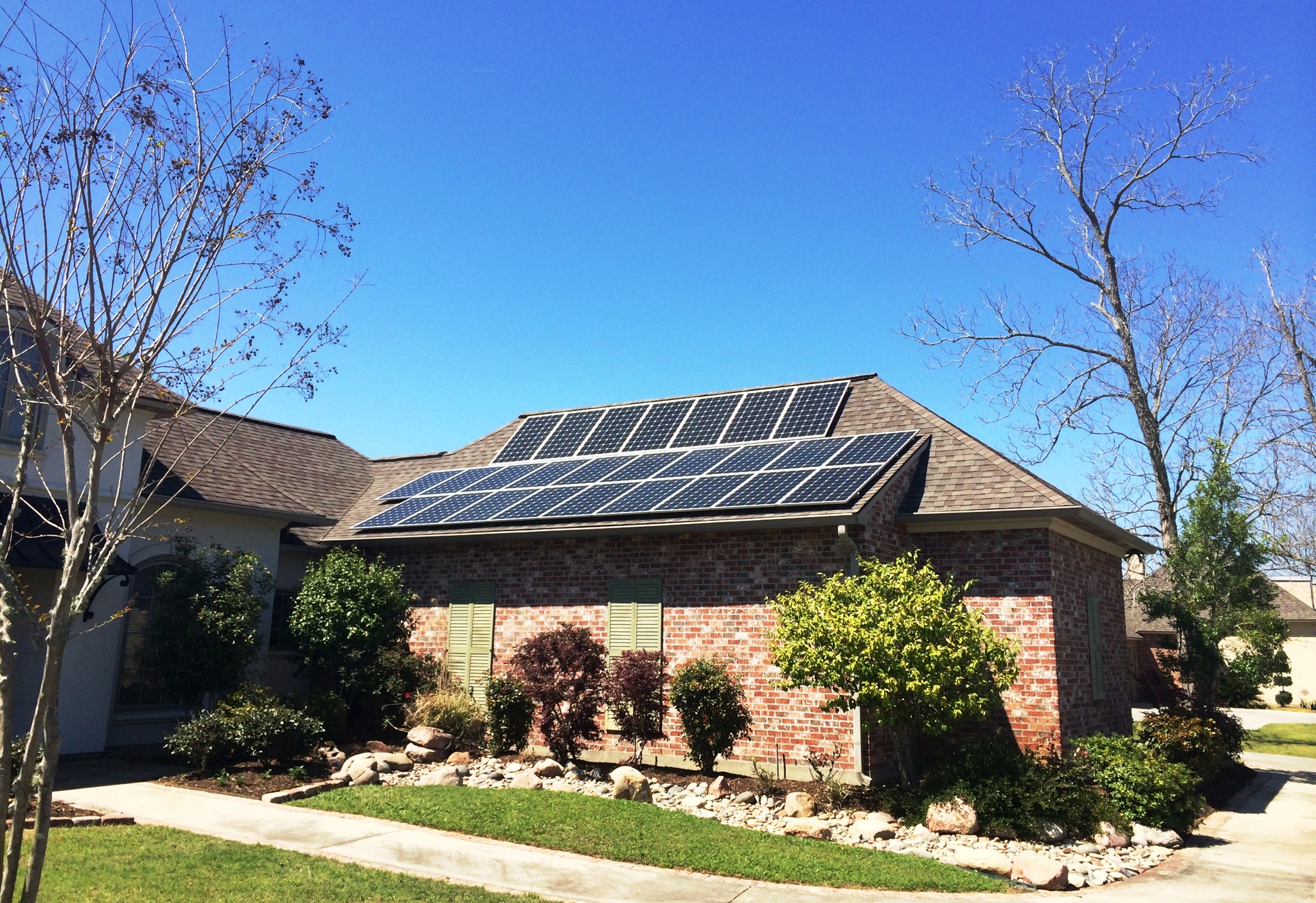Why Us?
Reach out to us today for a free quote!
Why Solar?
See what some our customers have to say about us
Hey Jeff- got my Entergy bill today. UNBELIEVABLE!!! Compared to 1 year ago, our kWh avg per day went from 67.6 to 33.3 and our Ccf used went from 58 to 17! THANKS!”
Deb
Baton Rouge, LA
“Again, I wanted to tell you how refreshing it was to deal with someone like you. This is how I try to treat my customers. This has been a learning experience and a confirmation of how a professional company works. You have earned my trust and referrals. Thank you again.”
C.J.
Baton Rouge, LA
“Thank you for all of your diligent work and for now having finished this large project. I admire each of you for your work ethic and for your professionalism.”
Dr. Helm
Baton Rouge, LA
“The entire team at my location were hard-working and quick to resolve problems. They all did a nice job. I was also satisfied with the follow-up and care they gave to helping you understand your system and how it functioned in relationship to the electric company for power and sell back.”
Harry
Alexandria, LA
“I would recommend Gulf South Solar to anybody else I talk to interested in solar panels. I was satisfied with GSS’ knowledge of the solar panels and what they could do for me and my family.”
Johnny
Denham Springs, LA
“Could not have been more pleased. GSS took care of every thing including interfacing with local governmental agencies & Entergy.”
Gwen & Ed
New Orleans, LA
Blog
Hurricane Season: “I Want to Get Off the Grid!”
I Want to Get Off the Grid! Typically we get the calls in September right after the hottest month on the Gulf, which is August. They start by announcing “I want to get off the grid!” 99% of these people actually mean something totally different than what they are saying. When we ask them why, Read more about Hurricane Season: “I Want to Get Off the Grid!”[…]
Lithium battery upgrades are the way to go
Now that Lithium batteries are mainstream in everything from cars to flashlights it is now time to consider lithium for your solar installation! While the initial cost is a bit more, they are a premium product. Providing deeper depth of discharge means 40% more power from the same size battery bank. Also, they last longer Read more about Lithium battery upgrades are the way to go[…]
Solar Tax Credits help pay for your system in the Gulf South!
Not only have the prices fallen drastically for SOLAR POWER in the last few years, there is still a TAX CREDIT that pays you to install solar! Don’t wait too long as they will be going away, but TODAY you can get a 22% TAX CREDIT for your whole system. Check this out:
Answering Questions About Solar and Golf
Hi Jeff, I am working on a solution for the golf industry in regards to energy consumption and participation increase. I would very much like to speak with you about golf course and resort energy consumption and how we can create a wide sweeping solar and energy conservation program that is a real solution to the golf Read more about Answering Questions About Solar and Golf[…]
Is solar still a good deal?
Is solar still a good deal? “The end of solar”. “Doom and gloom”. “Net metering is over”. Tax credits are gone”. “No more grid-tie” The answer is YES. While these phrases have been used quite a bit lately lets look at the facts… 1. Solar is a very good deal now. Solar is at the Read more about Is solar still a good deal?[…]
The Buzz is now Battery Storage
The Buzz is now Battery Storage It’s great to hear that the Buzz is now Battery Storage… especially since we’ve been doing it for 13 years! I’ve always offered the latest storage technology for cutting edge customers, that includes tried and proven equipment. I have personally beta tested and operated on my own home much of what Read more about The Buzz is now Battery Storage[…]
The Sky is Falling – The Sky is Falling – The 30% tariff
Well actually it isn’t. The people that are pushing “The sky is falling” agenda are none other than the China influenced SEIA group. True, if Chinese modules have tariffs applied to their import into the USA then their price will be slightly higher. Please keep it in mind that it has already been proven that Read more about The Sky is Falling – The Sky is Falling – The 30% tariff[…]
GoodBye SEIA (Solar Energy Industries Association)
(Originally published on 2/14/2014 – ALMOST FOUR YEARS AGO – Now listen to the spin today (1/22/18) that Trump is going to kill the solar industry! – Who do you think is promoting this nonsense? – Chinese cell manufacturers!) I was SEIA’s first, and for a long time, only Louisiana member. We know who to support Read more about GoodBye SEIA (Solar Energy Industries Association)[…]
Solar Lease Targeting Low Income and Minority Consumers
Solar Lease Targeting Low Income and Minority Consumers (Originally published on August 26, 2014. Republishing in response to the article today about Posigen) Solar – specifically “leased solar” has exploded in a number of low income, predominately minority neighborhoods in Louisiana. In Baton Rouge, it is the North Baton Rouge and Scotlandville areas. In New Orleans, it Read more about Solar Lease Targeting Low Income and Minority Consumers[…]
The History of Solar in Louisiana
The History of Solar in Louisiana The history of solar in Louisiana is very colorful one, which will be told one day in rich detail. It involves politicians, criminals, get-rich-quick schemes, and even some great people! Here’s an outline the milestones so you can see the bigger picture of what has happened. It begins in 1999 Read more about The History of Solar in Louisiana[…]
Solar + Storage
The headlines read – “Installers prep for Residential Solar PV plus Energy Storage” and I laugh. That’s what I’ve been doing since 1999 in Louisiana! I’ve been able to provide customers with storage, (the most logical solar) “officially” since I opened in 2003. While some of our customers have chosen to just go with battery-less Read more about Solar + Storage[…]
Louisiana Solar Tax Credits 2016
From the Associated Press: No more: Louisiana’s Department of Revenue says homeowners have applied for more solar energy tax credits this year than the three-year program can cover. The Associated Press reports the 2015 Legislature passed the program, with limits of $10 million for each of the first two years and a $5 million cap for Read more about Louisiana Solar Tax Credits 2016[…]
Haiti Solar VIDEO
Watch this Haiti solar video to see what a difference solar made in Gressier, Haiti.
Solar2World and GSS power Respire Haiti
Solar2World and Gulf South Solar power Respire Haiti – the movie! Take 3 minutes and watch what a difference solar can make.
SolarWorld and Gulf South Solar bring power to Respire Haiti
SolarWorld and Gulf South Solar bring power to Respire Haiti The Beginning One 45 minute visit to the rural community of Gressier, Haiti changed 24 year old Megan Boudreaux’s life forever. From that one trip alone, she witnessed the hardships of the children living in Gressier, and how the local restavek tradition of using orphaned Read more about SolarWorld and Gulf South Solar bring power to Respire Haiti[…]

